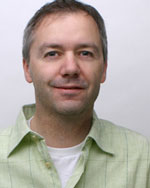Cofounder of PeerJ to give seminar on campus June 4
Speaker: Peter Binfield, PhD
Publisher of PeerJ (formerly of PLOS ONE)
Date: Tuesday June 4
Time: 12.00 noon
Location: 489 Minor Hall, UC Berkeley
Host: Suzanne Fleiszig
Thanks to the Internet, the last ten years have seen huge innovation and experimentation in the academic publishing world.
The most visible change has been in the rise of the Open Access movement, which has given birth to new and innovative journals such as PLOS ONE, PeerJ, F1000 R esearch and eLife. Publication in an open access format is increasingly recognized as being a good thing for researchers, authors and readers. As Open Access gains wider adoption, new developments such as article-level metrics, Open Peer Review and preprint servers are being rolled out to enhance the entire process of scholarly publication.
esearch and eLife. Publication in an open access format is increasingly recognized as being a good thing for researchers, authors and readers. As Open Access gains wider adoption, new developments such as article-level metrics, Open Peer Review and preprint servers are being rolled out to enhance the entire process of scholarly publication.
Joins us for a seminar by Pete Binfield (previously the Publisher of PLOS ONE, and now the Publisher and Co-Founder of PeerJ) as he provides an overview of the current landscape of Open Access publications; highlights some of the more innovative models that are being tested in the marketplace; and talks about items such as article level metrics and open peer review, and shows how these new developments can benefit researchers and authors.

